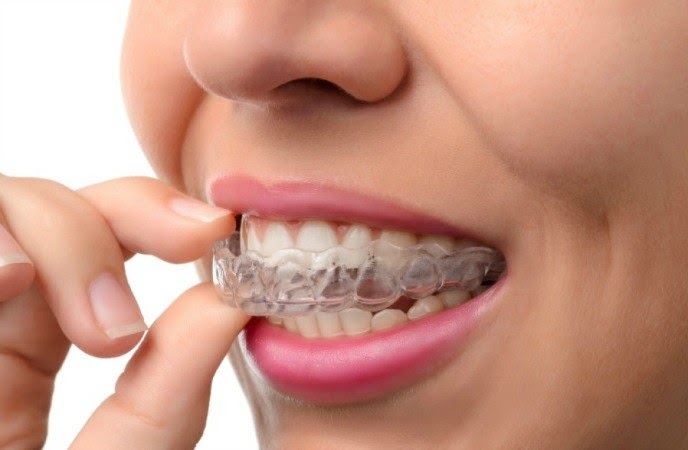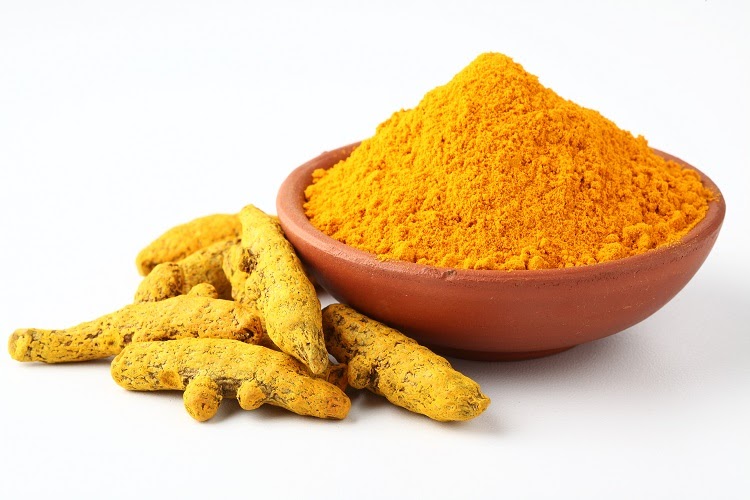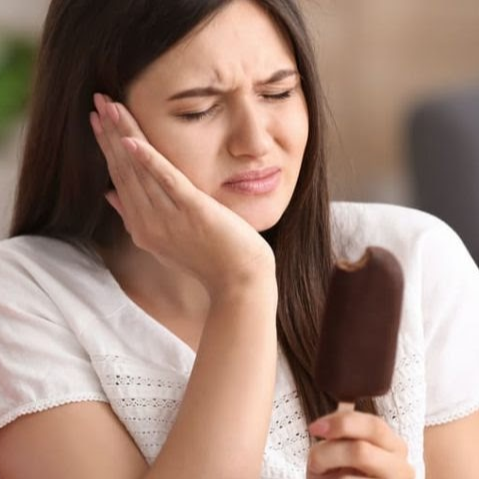People with sensitive teeth often experience pain or discomfort after consuming something cold like ice cream or hot like soup. If this pain is not due to cavities or decay, it may indicate dental sensitivity, which is a response to stimuli such as heat or cold. Tooth pain can be caused by a temporary or chronic issue and may affect one or more teeth. Common triggers include hot, cold, sweet, or acidic foods and beverages. Symptoms of sensitivity may range from mild to severe and may not always be noticeable. However, in most cases, sensitive teeth can be easily treated by improving oral hygiene habits.
What Causes Sensitive Teeth?
Tooth enamel is a hard outer protective layer that shields teeth and prevents damage. Thin or worn enamel over time can lead to pain in the tooth nerve. Individual oral hygiene habits and other conditions can contribute to the loss of enamel and result in sensitive teeth.
- Overbrushing, using hard-bristled toothbrushes, and brushing vertically along the gumline can wear down enamel more quickly.
- Consuming acidic foods and drinks such as soda, candy, or sugary carbohydrates damages tooth enamel. Eating fiber-rich fruits and vegetables as well as cheese, milk, and yogurt can help keep the mouth moist and protect teeth from acid and bacteria. Drinking green or black tea and chewing sugar-free gum after consuming acidic substances can also be beneficial. However, brushing teeth immediately after consuming acidic foods is not recommended and should be done after an hour.
- Grinding teeth over time wears down tooth enamel. Addressing the root cause or using a dental guard can help.

- Teeth whitening may cause tooth sensitivity. This is usually temporary and can be alleviated by discontinuing or spacing out whitening sessions.
- Acid reflux, which brings stomach acid into the mouth, gradually wears down teeth. Conditions like overeating or eating disorders (read more here) that cause frequent vomiting can also erode enamel.
- Tooth decay and fractures, chipped teeth, fillings, or worn crowns can lead to sensitivity. In such cases, sensitivity is often felt in a specific tooth rather than most of the teeth.
- Teeth may temporarily become sensitive after dental procedures such as fillings. In these cases, sensitivity typically subsides after a few days.
How Are Sensitive Teeth Diagnosed?
A dentist can determine the cause of dental sensitivity by examining the health of your teeth and identifying potential issues such as cavities, fillings, or gum problems. This is usually done through examination or X-rays.
How to Treat Sensitive Teeth at Home?
If tooth sensitivity is mild, the following measures may help:
Toothpaste for Sensitive Teeth
Use toothpaste specifically designed for sensitive teeth. These toothpastes contain no irritants and include anti-sensitivity agents that protect nerve endings from triggers. Potassium nitrate in these toothpastes blocks pain signals sent from tooth nerves to the brain.
Mouthwash
To reduce irritation, opt for alcohol-free, low-acid, and low-fluoride mouthwashes.
Soft Toothbrush
Using soft-bristled toothbrushes and proper brushing techniques can help alleviate tooth sensitivity.
Saltwater Rinse
Salt is an effective disinfectant, and saltwater reduces inflammation. Rinse your mouth twice daily with a solution made of 1/2 to 3/4 teaspoon of salt dissolved in a glass of warm water for 30 seconds to relieve pain in sensitive teeth.
Hydrogen Peroxide
Hydrogen peroxide is a mild disinfectant commonly used for cuts, burns, and wounds. Rinsing the mouth with a solution of equal parts warm water and 3% hydrogen peroxide can help heal gums and reduce inflammation. Swish the solution in your mouth for 30 seconds, then rinse with water to remove any residue.
Honey and Warm Water Solution
Honey is antibacterial and aids in wound healing. To reduce swelling, inflammation, and pain in sensitive teeth, rinse your mouth with a mixture of warm water and one tablespoon of honey.
Turmeric
Turmeric contains curcumin, an anti-inflammatory compound used in digestive treatments and wound healing. To relieve pain in sensitive teeth, make a paste of one teaspoon turmeric, 1/2 teaspoon salt, and 1/2 teaspoon mustard oil. Apply this mixture to your teeth and gums twice daily.

Green Tea
Green tea, known for its antioxidant and anti-inflammatory properties, supports heart health and cancer prevention. It also promotes oral health. Using unsweetened green tea as a mouthwash twice daily can strengthen teeth and reduce gum inflammation.
Capsaicin
Capsaicin, found in chili peppers, has pain-relieving and soothing properties. Using it as a topical gel or mouthwash may initially cause a burning sensation but can help reduce tooth pain and sensitivity.
Vanilla Extract
Vanilla extract, commonly used to soothe teething infants, can also help alleviate sensitive teeth. Apply a few drops of vanilla extract onto a cotton ball and place it on your gums for a few minutes. Repeat as needed.
These home remedies provide temporary relief for tooth pain and sensitivity but often do not address the root cause of discomfort. If symptoms persist after a few days, consult a dentist for a thorough evaluation.
Sources: healthline.com, webmd.com












Our Customers' Comments
No comments registered